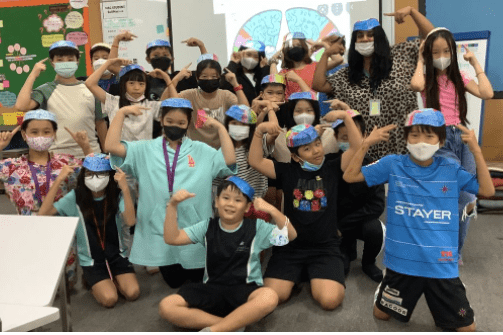By Tim Bell
Currently in the Grade 5 classrooms at Northbridge International School Cambodia, the students and the teachers are on a bit of a journey exploring how to be a successful learner.

By Tim Bell
Currently in the Grade 5 classrooms at Northbridge International School Cambodia, the students and the teachers are on a bit of a journey exploring how to be a successful learner.
We have brainstormed and researched a variety of factors that impact our learning. We have discovered that we have control over some of these factors, while others, not so much.
Our inquiry has taken us down several interesting pathways. The first is trying to understand the brain and who we are as learners. We were particularly curious about the two sides of the brain, the left and right. The left being more logical, mathematical and problem solving, whilst the right lends itself to the more creative arts, design and writing.
We also discovered that the science behind all this is still being questioned and explored. However, what people can agree on, is that there are definitely two sides of the brain.
One of our students came up with the curious question; “Can we be both sides or how can we activate both sides?” This is where things got even more interesting because at the same time of all this inquiry, I was also getting requests about what students should be doing after school to improve their learning.
Here is our verdict, mums and dads: our research over the last week showed in order to develop a ‘Golden Brain’, (activating both sides); a healthy diet, physical exercise, sleep, reading, chess and the occasional puzzle can the best thing for us to develop into successful learners and to keep our brain growing and healthy. The good news is that we all have control over those factors.
Now we have this knowledge we just need to be responsible and make the appropriate choices.